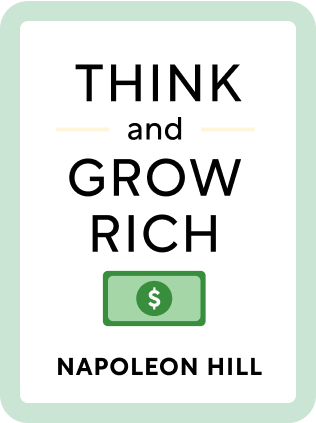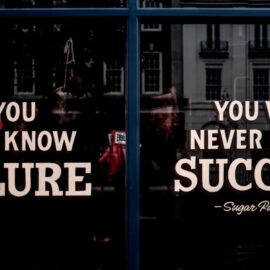

This article is an excerpt from the Shortform book guide to "Think and Grow Rich" by Napoleon Hill. Shortform has the world's best summaries and analyses of books you should be reading.
Like this article? Sign up for a free trial here .
What is the Think and Grow Rich secret formula for success? How can you use the secret formula to change your life?
The Think and Grow Rich secret to success is that we all have the power to control our thoughts. This power enables you to use positive thoughts to motivate yourself to pursue a reality where you are wealthy and successful. Use the Think and Grow Rich principles to develop the right mindset for accumulating wealth.
.Read on to discover more about the Think and Grow Rich secret to achieving success in life.
What Is the Think and Grow Rich Secret Formula for Success?
Think and Grow Rich is Napoleon Hill’s best-selling guide to becoming wealthy and successful. Published in 1937, it introduced the concept of positive thinking to the masses and was a forerunner to much of today’s self-help literature.
The Think and Grow Rich secret for success is that our thoughts create our reality. If we know what we want, desire and pursue it single-mindedly, have faith and create a plan, we can think it into being.
Hill offers a specific action plan and principles for achieving riches, which he gathered from interviews with 500 wealthy people, including Andrew Carnegie, Henry Ford, Thomas Edison, and Charles M. Schwab. He began with a conversation with Carnegie, who he says challenged him to spend 20 years interviewing successful men to capture in writing a philosophy of success that anyone, regardless of their station in life, can successfully emulate.
Although the book focuses on financial success, the principles of Think and Grow Rich are also applicable to other goals.
The secret to success is first understanding that we have the power to control our thoughts — then taking responsibility for doing so. If we choose not to control our thoughts, they end up controlling us.
Our thoughts determine whether we succeed or fail in work and life. If we fill our minds with thoughts of success (become success-conscious or money-conscious), we can achieve riches. If we allow ourselves to become failure-conscious instead, failure is what we will get.
The prescription for turning positive thoughts into riches, which is repeated in many ways throughout the book, is this:
- Focus on a single, clearly defined purpose as your overriding life goal.
- Make achieving this goal your all-consuming desire.
- Pursue it with persistence and faith.
Other Think and Grow Rich principles or qualities that come into play are:
- Decisiveness: Make decisions quickly and stick with them.
- Imagination: Cultivate your imagination as a source of ideas and inspiration.
- Planning: Create a specific plan to achieve success.
- Affirmation: Picture yourself succeeding and you’ll succeed.
- MasterMind group. Create a group of people committed to helping you achieve your goal.
Hill gives examples of how some of the country’s most successful business leaders, inventors, and creative thinkers achieved great wealth or other forms of success by following the steps and principles for transforming thoughts into reality.

———End of Preview———
Like what you just read? Read the rest of the world's best book summary and analysis of Napoleon Hill's "Think and Grow Rich" at Shortform .
Here's what you'll find in our full Think and Grow Rich summary :
- Napoleon Hill's 1937 guide to success
- How to use thoughts, visualization, and affirmation to achieve wealth
- The importance of a Master Mind group and how to start one






